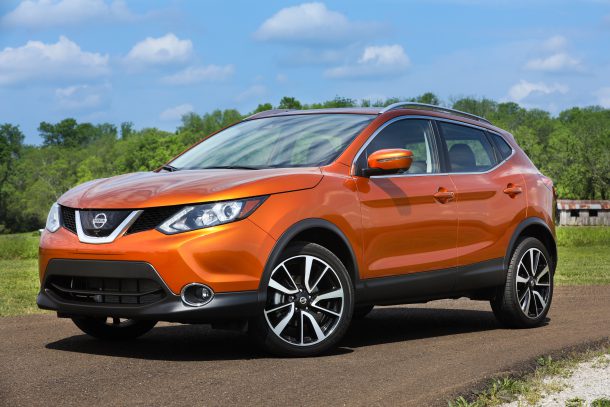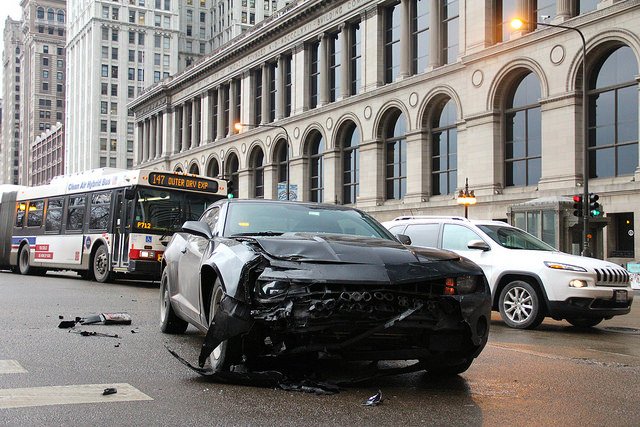#AEB
Shrewd or Crude? NHTSA Proposes Automatic Emergency Braking Requirements
Last week, the National Highway Traffic Safety Administration (NHTSA) floated the notion that every new passenger vehicle should come with automatic emergency braking (AEB) systems. It would seem that the stage is being set for another mandatory safety inclusion, with the NHTSA targeting universal implementation by the end of the decade. But adding another safety net would come with a few complications, as AEB doesn’t really qualify as a passive system.
Volvo Recalls Every Model Assembled Since the Start of 2019
Volvo is recalling every vehicle sold in the United States from the 2020 and 2019 model year. It turns out the automaker with the reputation for placing extra emphasis on safety has some bunk safety equipment. During tests late last year, the Federation of Danish Motorists noticed the automatic emergency braking (AEB) system in a Volvo XC60 consistently failed to operate as intended — smacking itself into numerous test dummies and automobiles.
After an internal investigation, Volvo Cars issued a global recall encompassing roughly 736,000 units on March 13th. Since the manufacturer has made the feature standard equipment on all vehicles, every single model produced by the automaker since January 21st, 2019 needs to be recalled.
NHTSA Probing Nissan Rogues That Brake for No Reason
Nissan added automatic emergency braking as standard equipment on eight popular models for the 2018 model year, looking to get a jump on the pact forged in 2016 that calls for mandatory AEB on all cars and light trucks by 2020.
That pact, covering 20 automakers, the National Highway Traffic Safety Administration, and the Insurance Institute for Highway Safety, is already bearing fruit. Just last month, the NHTSA congratulated a slew of automakers, including Nissan, for including the safety feature on the majority of their vehicles.
One month later, and the NHTSA finds itself investigating Nissan for a potential fault with its AEB system.
Cycling Pileup Shows the Unexpected Dangers of Vehicle Safety Aids
Thanks to a pact among the world’s largest automakers, automated emergency braking will soon be standard kit on nearly every new vehicle, paving the way for a future of collision-free bliss. That’s the plan, anyway. While undoubtedly a valuable addition to the automotive landscape, self-thinking vehicle safety systems sometimes reveal their dark side.
That’s what happened Wednesday during the Abu Dhabi Tour — a big-deal cycling race in a locale where hydration no doubt takes on new importance. Fluids weren’t top of mind for five of the cyclists, however, as their race was cut short by a Mercedes-Benz with a mind of its own.
Safety Wars: Nissan to Add Standard Crash-Prevention Feature to Majority of 2018 Models
In the 1950s and 60s it was the horsepower war, followed soon after by the fuel economy battles of the 1970s and 80s. Today, the peace of mind that comes from available safety features competes with horsepower, environmental sensitivity and connectivity to win the hearts and minds of new car buyers.
Owning a vehicle that can head off a crash by itself is a tantalizing prospect for many drivers. With the industry already heading in that direction, Nissan has decided to add automatic emergency braking as standard equipment on eight of its 2018 models.
Consumer Reports Downgrades Tesla Models Over Safety Concerns
Consumer Reports has been pretty hard on Tesla Motors over the past year. The primary point of contention in 2016 was the automaker’s perceived misrepresentation of the company’s Autopilot feature. CR wanted the automaker to disable hands-free operation until its system could be made safer and insisted that it make clear to consumers that it was not capable of true self-driving capability.
While Tesla addressed some of those concerns with its 8.0 software update last autumn, the consumer advocacy publication said it didn’t go nearly far enough — demanding that Tesla stop calling it Autopilot, disable automatic steering, and quit beta testing on its own customers.
Continuing those safety concerns into 2017, Consumer Reports has downgraded both of Tesla’s existing models, claiming the company failed to enable automatic emergency braking features it said would come as standard equipment. This is perplexing, as Model S and Model X vehicles equipped with first-generation Autopilot systems actually had this function.
Automatic Emergency Braking Won't Always Stop a Crash, But Americans Think It Will
Automatic emergency braking is finding its way into more and more cars (and automakers have a pact to make it standard equipment by 2022), but most drivers don’t know the technology’s limitations.
AEB systems slow or stop a vehicle in an emergency, preventing or mitigating a crash, but an American Automobile Association study shows that 71 percent of U.S. drivers familiar with the technology believe AEB will prevent all crashes.
Your Future No Longer Includes Rear-Ending That Other Car
As we reported yesterday, a group of top automakers has agreed to offer automatic emergency braking (AEB) on almost all of their models by 2022.
The National Highway Transportation Safety Administration (NHTSA) confirmed the voluntary agreement today, meaning virtually all light-duty cars and trucks sold in North America will adopt the safety feature by Sept. 1, 2022.
The group is made up of Audi, BMW, FCA US LLC, Ford, General Motors, Honda, Hyundai, Jaguar Land Rover, Kia, Maserati, Mazda, Mercedes-Benz, Mitsubishi Motors, Nissan, Porsche, Subaru, Tesla Motors Inc., Toyota, Volkswagen and Volvo Car USA.























Recent Comments